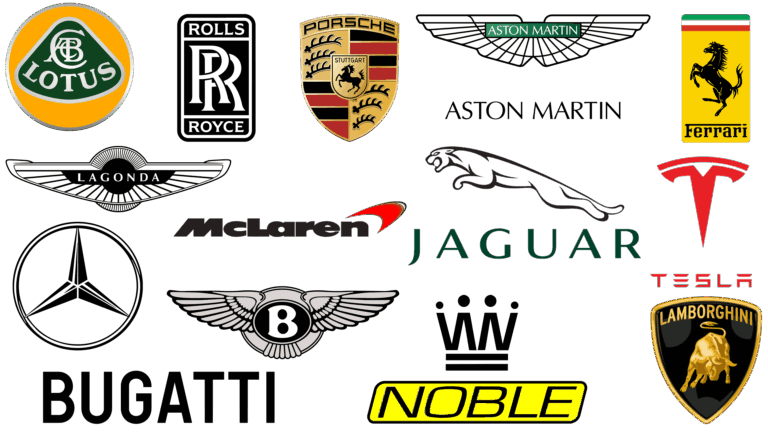The Best Car Oil Brand: A Comprehensive Guide to Protecting Your Engine
The Best Car Oil Brand: A Comprehensive Guide to Protecting Your Engine cars.truckstrend.com
The heart of your vehicle is its engine, a marvel of engineering composed of countless moving parts working in harmony under extreme conditions. And what keeps this intricate dance smooth, efficient, and long-lasting? Engine oil. Far more than just a lubricant, engine oil is the lifeblood of your car, performing critical functions that directly impact performance, fuel economy, and the very lifespan of your vehicle.
But in a market flooded with countless options, the question arises: What is "The Best Car Oil Brand?" The truth is, there isn’t a single, universally "best" brand for every car, every driver, and every condition. Instead, "the best" refers to finding the optimal oil that perfectly matches your vehicle’s specific requirements, your driving habits, and the environmental conditions you face. This comprehensive guide will demystify the world of engine oil, empowering you to make an informed decision that ensures your engine receives the ultimate protection it deserves.
The Best Car Oil Brand: A Comprehensive Guide to Protecting Your Engine
Understanding Engine Oil Basics: More Than Just Lubrication
Before we dive into brands, it’s crucial to understand what engine oil does and why it’s so vital. Engine oil performs five primary functions:
- Lubrication: This is its most well-known role. Oil creates a thin film between moving metal parts (like pistons and cylinder walls, crankshafts, and bearings), preventing direct metal-on-metal contact, which would otherwise lead to extreme friction, heat, and rapid wear.
- Cooling: As engine parts move, they generate immense heat. Oil absorbs this heat from critical components and carries it away to the oil pan, where it dissipates, helping to regulate the engine’s temperature.
- Cleaning: Engine combustion produces byproducts like soot, sludge, and varnish. Engine oil contains detergents and dispersants that clean these contaminants from engine surfaces and hold them in suspension, preventing them from clumping together and forming harmful deposits.
- Sealing: Oil helps to form a seal between the piston rings and cylinder walls, preventing combustion gases from escaping past the piston into the crankcase, thus maintaining compression and power.
- Corrosion Protection: Engine oil contains rust inhibitors and anti-corrosion additives that protect internal metal components from rust and acid buildup, especially when the engine is not running.

Neglecting oil quality or proper oil change intervals can severely compromise these functions, leading to reduced performance, increased wear, and ultimately, costly engine damage.
Types of Engine Oil: Choosing Your Engine’s Lifeblood
The market offers several categories of engine oil, each with distinct properties and benefits:
- Conventional Motor Oil: Derived from crude oil, this is the least refined and most basic type. It’s suitable for older vehicles with simpler engine designs and less demanding driving conditions. While the most affordable, it offers less protection against extreme temperatures and deposits compared to synthetic options and typically requires more frequent changes.
- Synthetic Blend Motor Oil (Semi-Synthetic): This is a mix of conventional and synthetic base oils, along with performance-enhancing additives. It offers a better balance of performance and price than conventional oil, providing enhanced protection against wear, improved flow at low temperatures, and better resistance to oxidation and thermal breakdown. It’s a good upgrade for many cars.
- Full Synthetic Motor Oil: Engineered from scratch using highly refined base oils and advanced additives, full synthetic oil offers superior performance and protection. It excels in extreme temperatures (both hot and cold), provides exceptional wear protection, reduces friction, cleans the engine more effectively, and can extend oil change intervals. While more expensive upfront, its benefits often outweigh the cost, especially for modern, high-performance, or turbocharged engines.
- High Mileage Motor Oil: Specifically formulated for vehicles with over 75,000 miles, this oil often contains seal conditioners to help prevent leaks and reduce oil consumption, as well as enhanced cleaning agents to combat sludge buildup common in older engines. It can be conventional, blend, or full synthetic.
- OEM-Specific/Specialty Oils: Some manufacturers (like BMW, Mercedes-Benz, General Motors with Dexos) specify proprietary oil standards that require specific formulations to meet their engine’s unique demands. Always check your owner’s manual for these designations.


Key Factors in Choosing "The Best" Oil for Your Car
Determining "The Best Car Oil Brand" isn’t about brand loyalty; it’s about meeting your vehicle’s precise needs. Here are the critical factors to consider:
-
Vehicle Manufacturer Specifications (The Golden Rule): This is paramount. Your car’s owner’s manual is your ultimate guide. It will specify:
- Viscosity Grade (e.g., 5W-30, 0W-20): This indicates the oil’s thickness at different temperatures. "W" stands for "winter" – the first number (e.g., 5W) denotes the oil’s viscosity at cold temperatures, indicating how easily it flows during cold starts. The second number (e.g., 30) indicates its viscosity at operating temperature. Using the wrong viscosity can lead to insufficient lubrication or excessive drag.
- API Service Category (e.g., SP, SN Plus): The American Petroleum Institute (API) sets minimum performance standards. "S" categories are for gasoline engines (e.g., SP, SN, SM), and "C" categories are for diesel engines (e.g., CK-4). Always use the latest API service category recommended or higher.
- ACEA Specifications (European Cars): For European vehicles, the European Automobile Manufacturers’ Association (ACEA) provides standards (e.g., A3/B4, C3). These are often more stringent than API for certain aspects.
- ILSAC Standards (e.g., GF-6A): The International Lubricant Standardization and Approval Committee (ILSAC) sets standards focusing on fuel economy and emissions for North American and Asian passenger cars.
- OEM Approvals (e.g., Dexos1 Gen2, BMW LL-01, MB-Approval 229.5): Many manufacturers have their own specific tests and approvals. Using an oil with the exact OEM approval guarantees it meets the manufacturer’s rigorous standards for your engine.
-
Driving Conditions:
- Extreme Temperatures: If you live in areas with very cold winters or scorching summers, a full synthetic oil will offer superior protection due to its stable viscosity across a wide temperature range.
- Stop-and-Go Driving/City Driving: Frequent short trips and idling can lead to increased engine wear and sludge buildup. Full synthetics or high-quality synthetic blends with strong cleaning properties are beneficial here.
- Towing/Heavy Loads: Engines under heavy load run hotter and work harder. A robust synthetic oil provides better film strength and thermal stability.
-
Vehicle Age and Mileage:
- Newer Vehicles: Modern engines, especially those with turbochargers, direct injection, or start-stop systems, are often designed for and require full synthetic oil (e.g., 0W-20, 5W-20) to protect their tighter tolerances and advanced components.
- Older Vehicles (75,000+ miles): High mileage oils can be beneficial to address wear, leaks, and sludge accumulation.
- Vintage Cars: May require specific conventional oils with higher ZDDP (zinc dialkyldithiophosphate) content for flat-tappet camshaft protection, as modern oils have reduced ZDDP for catalytic converter longevity. Consult a specialist.
-
Additives: While you don’t choose oil based solely on additives, understanding that oils contain a complex blend of detergents, dispersants, anti-wear agents, rust inhibitors, and friction modifiers helps appreciate the engineering behind quality lubricants. Premium brands invest heavily in their additive packages.
Top Contenders for "The Best Car Oil Brand" (and Why They Excel)
While the "best" oil is the one specified in your manual, certain brands consistently rank high in performance, innovation, and consumer trust due to their advanced formulations and rigorous testing. Here are a few leading brands often considered top contenders:
- Mobil 1: Often credited with pioneering synthetic motor oil, Mobil 1 is a global leader. Their full synthetic oils are renowned for exceptional wear protection, outstanding performance in extreme temperatures, and superior engine cleanliness. They offer a wide range of products tailored for various vehicle types and driving conditions, often exceeding OEM specifications.
- Castrol: With over 100 years of experience, Castrol is another household name. Their EDGE series (full synthetic) and GTX series (conventional/blend) are popular choices. Castrol is known for its fluid titanium technology in EDGE, which claims to increase oil film strength, and its focus on engine cleaning properties in GTX. They have strong relationships with many European car manufacturers.
- Pennzoil: Famous for its "PurePlus" technology, Pennzoil manufactures its full synthetic oils from natural gas, not crude oil. This process claims to result in a purer base oil with fewer impurities, leading to better wear protection, improved fuel economy, and superior piston cleanliness. Pennzoil Platinum and Ultra Platinum are highly regarded.
- Valvoline: As America’s first motor oil company, Valvoline has a long history of innovation. Their SynPower full synthetic and MaxLife high mileage oils are particularly popular. MaxLife is often recommended for older engines due to its specialized additives for seal conditioning and wear reduction.
- Shell Rotella: While primarily known for heavy-duty diesel engine oils, Shell Rotella T6 (a full synthetic diesel oil) has gained a cult following among some gasoline vehicle owners, particularly those with older engines or modified vehicles, due to its robust additive package and high ZDDP content. However, always verify if it’s suitable for your specific gasoline engine as it may not meet all gasoline engine requirements.
Important Note: These brands are excellent starting points, but always cross-reference their specific products with your car’s owner’s manual for API, ACEA, ILSAC, and OEM approvals.
How to Choose the Right Oil for Your Car: A Practical Guide
- Open Your Owner’s Manual: This is the most crucial step. Locate the section on "Recommended Fluids" or "Engine Oil." It will explicitly state the required viscosity (e.g., 5W-30), API service category (e.g., API SP), and any specific OEM approvals (e.g., Dexos1 Gen2).
- Match Specifications, Not Just Brand: Once you have the specifications, look for oils that exactly match or exceed those requirements. If your manual says API SN, an oil rated API SP is acceptable as SP is a newer, superior standard. If it requires a specific OEM approval (like BMW LL-01), only use oils explicitly stating that approval.
- Consider Your Driving Habits:
- Normal Commuting: A quality synthetic blend or full synthetic meeting your OEM specs is usually sufficient.
- Heavy Duty/Towing/Performance Driving: Opt for a robust full synthetic oil that offers maximum protection against heat and wear.
- Short Trips/City Driving: Full synthetic oils with strong cleaning properties are beneficial to combat sludge from frequent cold starts and stops.
- Age of Your Vehicle: If your car has high mileage, consider a high mileage oil. If it’s a newer vehicle, especially with direct injection or turbocharging, stick to the manufacturer’s recommendation, which often defaults to full synthetic.
- Don’t Mix Oil Types (Generally): While not immediately catastrophic, mixing conventional and synthetic oils dilutes the benefits of the synthetic. It’s best to stick to one type. You can switch from conventional to synthetic, but ensure you use the correct viscosity and specifications.
- Read Labels Carefully: Don’t just grab the cheapest or most recognizable brand. Read the front and back of the bottle to confirm all specifications match your manual.
Tips for Optimal Oil Maintenance
- Adhere to Oil Change Intervals: Your owner’s manual will specify a time and mileage interval (e.g., every 5,000 miles or 6 months, whichever comes first). For modern cars using synthetic oil, these intervals can be longer (e.g., 7,500-10,000 miles). Stick to these guidelines or even slightly sooner if you engage in severe driving conditions.
- Check Oil Levels Regularly: At least once a month, check your oil level on a flat surface when the engine is warm but has been off for a few minutes (allowing oil to drain back to the pan). Top up if necessary.
- Use a Quality Oil Filter: The oil filter removes contaminants from the oil. A cheap, inefficient filter can negate the benefits of premium oil. Choose OEM filters or reputable aftermarket brands (e.g., Wix, Mann, Fram Ultra Synthetic).
- Dispose of Used Oil Responsibly: Never pour used oil down the drain or into the ground. Most auto parts stores, service centers, and municipal recycling facilities accept used motor oil for proper disposal.
Potential Challenges and Misconceptions
- "Synthetic Oil Causes Leaks": This is a myth from the early days of synthetic oil. Modern synthetic oils are formulated to be compatible with engine seals and do not cause leaks. If an older engine starts leaking after switching to synthetic, it’s likely because the synthetic’s superior cleaning power dislodged pre-existing sludge that was already plugging a small leak, or the seals were already compromised.
- "All Oils Are the Same": Absolutely false. The base oils, additive packages, and refinement processes vary significantly between conventional, blends, and full synthetics, as do the performance capabilities of different brands.
- "More Expensive Oil Is Always Better": While premium full synthetics offer superior protection, buying the most expensive oil isn’t necessarily "better" if your car doesn’t require it or if you’re not using the correct specifications. "Best" is about the right fit, not just the highest price tag.
- "You Can Go Much Longer Between Changes with Synthetic": While synthetic oils are more durable, always follow your owner’s manual’s recommended oil change interval. Some manuals specify extended intervals only if a certain type of synthetic oil is used. Exceeding recommended intervals, even with synthetic, can still lead to issues.
Estimated Price Table for Popular Car Oil Brands (Illustrative)
Please note: Prices are highly variable based on retailer (online vs. brick-and-mortar), promotions, region, and specific product line. These are estimated ranges for common 1-quart and 5-quart containers.
| Brand | Oil Type | Common Viscosity | Size (Approx.) | Estimated Price Range ($) | Key Feature/Benefit |
|---|---|---|---|---|---|
| Mobil 1 | Full Synthetic | 0W-20, 5W-30 | 5-quart jug | $25 – $40 | Leading synthetic, extreme temp protection, wide OEM approvals |
| Advanced Fuel Econ | 0W-20, 5W-20 | 5-quart jug | $28 – $42 | Optimized for fuel efficiency | |
| High Mileage | 5W-30, 10W-30 | 5-quart jug | $30 – $45 | For engines over 75k miles, seal conditioners | |
| Castrol | EDGE Full Synthetic | 0W-20, 5W-30 | 5-quart jug | $25 – $38 | Fluid Titanium technology for film strength |
| GTX Synthetic Blend | 5W-30, 10W-30 | 5-quart jug | $20 – $30 | Good balance of performance and value | |
| GTX Conventional | 5W-30, 10W-40 | 5-quart jug | $15 – $25 | Basic protection for older vehicles | |
| Pennzoil | Ultra Platinum Full Synthetic | 0W-20, 5W-30 | 5-quart jug | $28 – $42 | PurePlus Technology (gas-to-liquid) for purity, cleanliness |
| Platinum Full Synthetic | 0W-20, 5W-30 | 5-quart jug | $25 – $38 | Strong all-around synthetic performance | |
| Gold Synthetic Blend | 5W-30, 10W-30 | 5-quart jug | $20 – $30 | Enhanced protection over conventional | |
| Valvoline | SynPower Full Synthetic | 0W-20, 5W-30 | 5-quart jug | $25 – $38 | Broad compatibility, robust protection |
| MaxLife High Mileage | 5W-30, 10W-30 | 5-quart jug | $22 – $35 | Tailored for engines over 75k miles, seal care | |
| Daily Protection Conventional | 5W-30, 10W-30 | 5-quart jug | $15 – $25 | Reliable conventional option |
Frequently Asked Questions (FAQ)
Q1: How often should I change my car’s oil?
A1: Always follow your car’s owner’s manual. Intervals typically range from 5,000 to 10,000 miles or every 6-12 months, whichever comes first. Factors like severe driving (towing, extreme temperatures, short trips) may necessitate more frequent changes.
Q2: Can I mix different brands or types of engine oil?
A2: While most modern oils are generally compatible, it’s best practice not to mix different types (e.g., conventional with full synthetic) or brands if avoidable. Mixing can dilute the specific additive packages and performance benefits of the higher-quality oil. In an emergency, adding a small amount of any oil that meets your viscosity requirement is better than running dangerously low.
Q3: Is full synthetic oil really worth the extra cost?
A3: For most modern vehicles, especially those with turbochargers, direct injection, or stop-start systems, yes, full synthetic is highly recommended or even required. It offers superior protection against wear, sludge, and extreme temperatures, often leading to better fuel economy and extended engine life, which can offset the higher initial cost.
Q4: What do the numbers on the oil bottle (e.g., 5W-30) mean?
A4: This is the oil’s viscosity grade. The first number (e.g., "5W") indicates its viscosity (thickness) at cold temperatures, with "W" standing for winter. A lower number means better flow in cold weather, which is crucial for cold starts. The second number (e.g., "30") indicates its viscosity at normal operating temperature. A higher number means the oil is thicker when hot.
Q5: Does my car need synthetic oil?
A5: Check your owner’s manual. Many newer cars explicitly require full synthetic. If your manual recommends conventional or synthetic blend, you can still upgrade to synthetic for enhanced protection and performance, but always ensure it meets the required viscosity and specifications.
Q6: What happens if I don’t change my oil regularly?
A6: Neglecting oil changes can lead to severe engine damage. The oil will break down, lose its lubricating and cleaning properties, and become thick with contaminants. This results in increased friction, excessive wear, sludge buildup, reduced fuel economy, decreased performance, and eventually, catastrophic engine failure.
Conclusion: Investing in Your Engine’s Future
The quest for "The Best Car Oil Brand" ultimately leads not to a single name, but to a deeper understanding of your vehicle’s specific needs. The true "best" oil is the one that meticulously matches the specifications outlined in your owner’s manual, aligns with your driving conditions, and comes from a reputable brand known for its quality and innovation.
By prioritizing the correct viscosity, API/ACEA/ILSAC standards, and OEM approvals, and by adhering to regular maintenance schedules, you are not just pouring oil into your engine; you are investing in its longevity, performance, and reliability. This informed approach ensures that your car’s heart beats strong for many miles to come.





